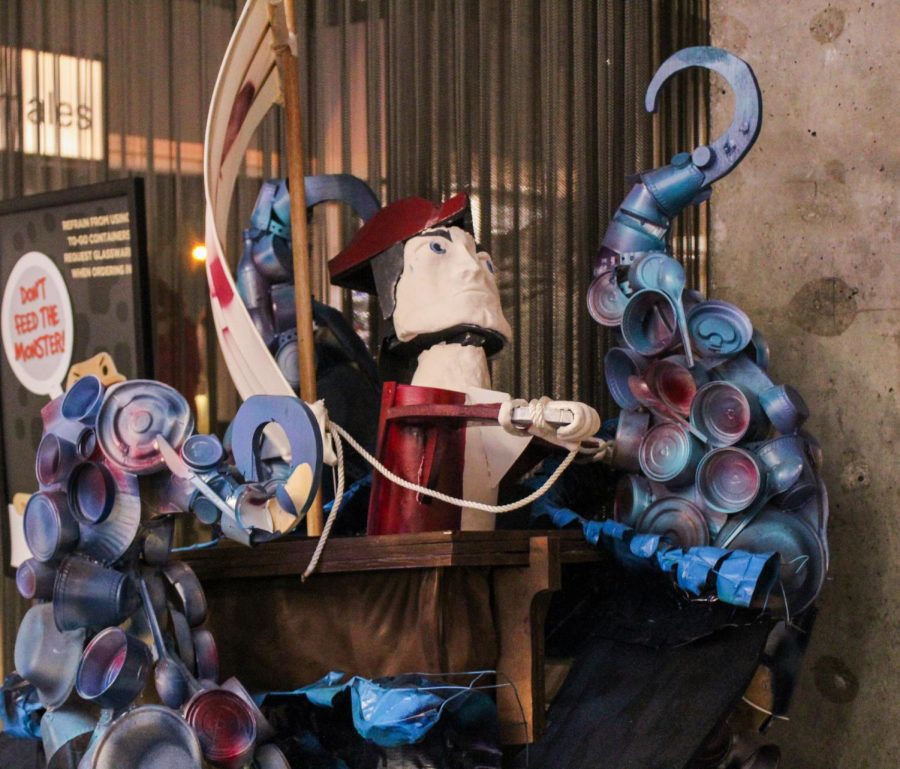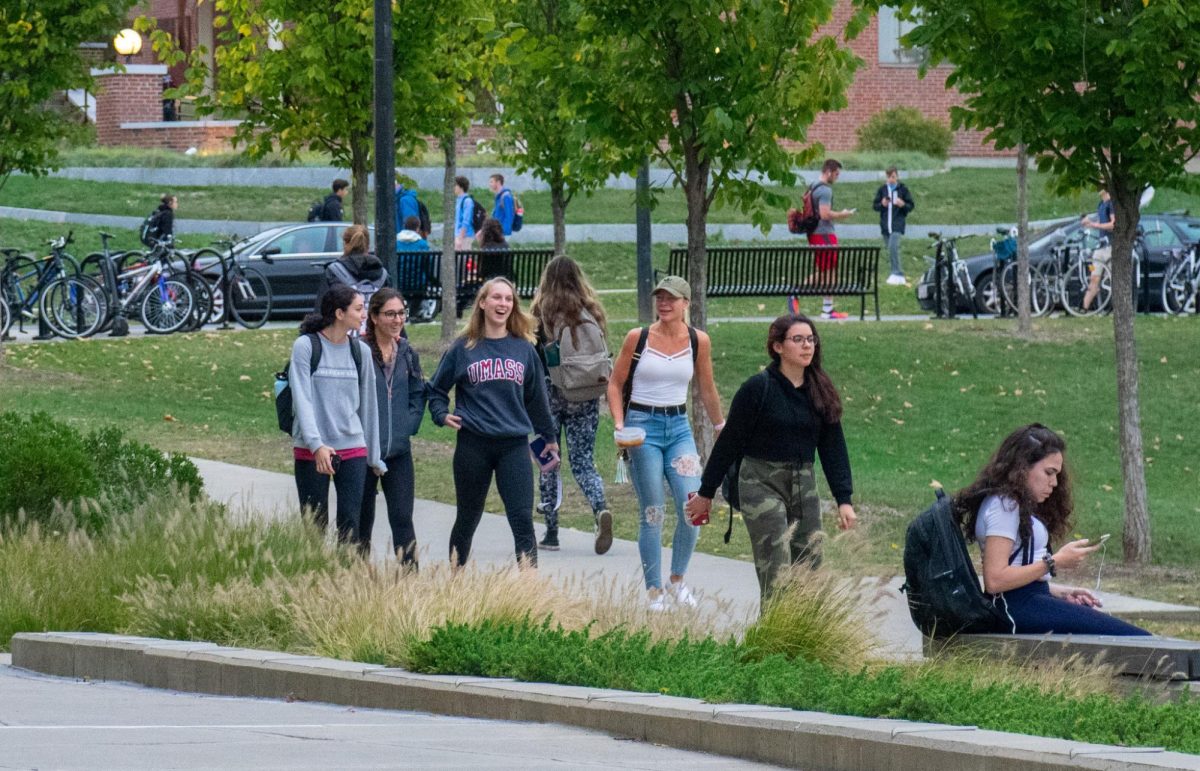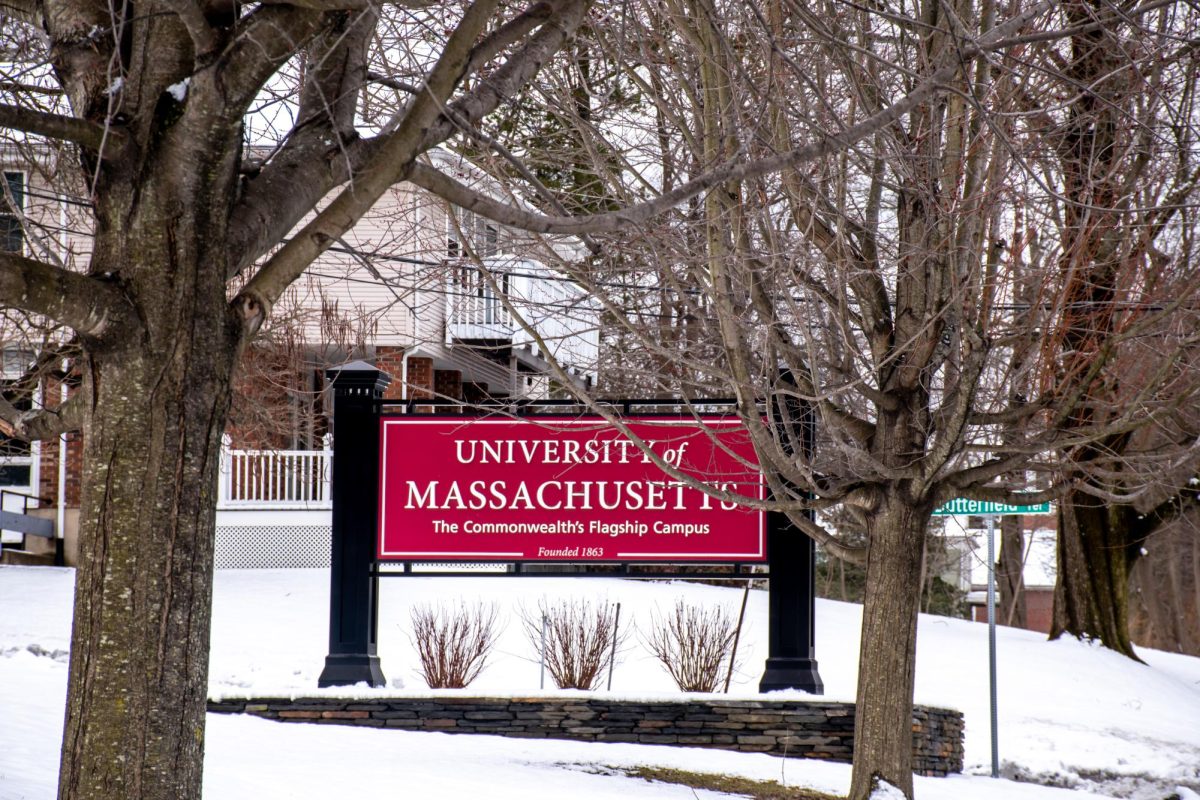It’s that time of year again when the grass gets greener, the trees spring back to life and University of Massachusetts students make their way out of their dorms for the first time since fall. The grass starts to get greener through help from UMass’ Grounds department, its Landscapes Services crews and especially from composting. UMass’ compost comes from its very own dining halls, as well as its residential hall’s student-run co-ops.
UMass prides itself on being environmentally friendly. The University ranked 27th in the Princeton Review for the top green colleges. According to the UMass Office of Waste Management, “UMass Amherst composts over 1,500 tons (3 million lbs) of food waste each year making composting the largest recycling stream on campus. Composting bins are available across campus in dining commons and cafes.” Compost is not just a staple at the dining commons and cafes, but at the campus co-ops as well.
Greeno Sub Shop, a non-profit, student-run collective, composts everything from vegetables to animal products. Annelise Poole, a sophomore communications major and co-manager at Greeno since January, says the sub shop composts everything that it can.
“We compost any food waste in the shop. We encourage customers to compost their food waste as well. But behind the scenes any food waste we make on the subline or prepping food, we compost,” Poole said. “We have a compost bin provided by the University. I know it is an industrialized single circuit compost because they haven’t told us to separate meats.”
The food waste from all the dining halls and the cafes and student-run businesses end up in one of two locations. The leave and yard waste is sent to the Waste Recovery and Transfer Facility. The primary compost location is Martin’s Farm, which has been a family owned business for 30 years. This local farm has been producing compost and mulch. The farm takes UMass’s recycled food waste and turns it into compost and returns it to UMass for landscaping and agricultural needs. Next time you look at the beautiful gardens, remember to take a moment to appreciate the processes that allowed the flowers to bloom.
The composting process is not only great for the planet, but also for the economy. According to the UMass Office of Waste Management, “Excluding collection labor costs, this system costs UMass approximately $45 per ton all told – as compared to approximately $75 per ton for transport and disposal of UMass trash.”
Kaleigh Keohane, a senior journalism and natural resource conservation major, is the Program Manager of the Eco-Rep Program at UMass, which promotes “environmental literacy and leadership.” She believes that there is more we can do as individuals on campus.
“The Eco-Rep facilitators and myself think Martin’s Farm is amazing in what they do, but as a campus, we can be doing better to compost correctly,” she said. “Lots of students mistake the ‘paper’ cups and ‘plastic’ containers as recyclable, and throw them in the wrong bin. Incorrect disposal pollutes our single-stream and could lead to the recycling ending up in a landfill if it is too contaminated.”
Composting is often overlooked. When walking through any of the Integrative Learning Center or the Integrated Sciences Building, students tend to not take the time to recognize all of the options they have for waste disposal. It is essential to know what to compost and what will get the compost and recycling rejected and sent to a landfill.
Poole said, “When it [food waste] goes to landfills, it produces methane and it is really bad for the environment. Although the food isn’t being consumed by someone, it might be going to a farm where it can be used to make soil or recycled. It is being used in some ways.”
Food waste finding its way to a landfill is extremely harmful to the planet. Methane is 25 times more potent than carbon dioxide, and by sending food waste to a landfill, we are creating this dangerous gas. Methane is never created when food is composted, and it protects the planet from this harmful greenhouse gas.
Keohane wants to take the composting at UMass a step forward: “A lot of us want to see residential composting in the dorms, which they already do in North Apartments.”
If you are interested in learning more about the UMass composting system and becoming part of the solution, you can read more about the program. This is one of the easiest ways to go green, and the planet will thank you.
Catie Riordan can be reached at [email protected].



















